Dear WesleyNexus Colleagues,
Several weeks ago I had the opportunity to read a very creative novel by a good friend of mine, Rev. Dr. Bob Maddox – actually, it is book one of a two volume novel available on Amazon – called Jesus of Nazareth and the Kingdom of Weeds. Book One is an imaginative, expansive and at times provocative rendition of the early years of Jesus – those years about which our canonical gospels are silent, but about which there has been much speculation for two centuries. We do have ancient texts, of course, that include stories about the young Jesus that survived in the oral tradition, some of which actually made it into the Qur’an, but thankfully, these mostly were overlooked and discarded by our Gospel writers.
That being said, this newly published novel – which Bob has been working on for more than twenty years – is an excellent read, not because it parallels our familiar traditions about Jesus and his family but because it is so creative and imaginative. And, as a novel, one can say it is a “page-turner” – one is eager to get back to it after a break for lunch. For example, everyone asks at one time or another, “What happened to Joseph?” Well, we will never know for sure, but at least here is an answer that stirs the imagination. Or, how did Jesus develop the gifts he later exhibited in the “healing arts?” Here is a very creative scenario that explains the development of that capacity.
Now one can ask, what’s the point of this kind of speculation? After all, don’t we have the four Gospels that tell us all we need to know about Jesus’ life? Of course, we do — not only the four gospels but the letters of Paul (which were written first) and some other extra-canonical texts, and the extensive works of historians such as Josephus. But we also realize that the Gospel writers themselves had to use their imaginations to create what we have today as coherent “narratives” of Jesus’ life. And each one created a different story, even as they more or less followed the structure of Mark’s text. But then, Mark was writing at least 40 years after the death of Jesus, so he had to “fill in the gaps” himself, pulling together lots of disparate threads from the oral tradition. In fact, we don’t have many “facts” about Jesus life and ministry –as the scholar Rudolph Bultmann taught us mid-twentieth century, what we have in the New Testament is “kerygma” not history.
Now this is a good lesson for us all. One of the truisms that we all should have learned by now is that tradition abhors a vacuum – so do scientists, historians, and theologians. If there is a lacuna in the document, we can’t wait to find a scrap that will fill the hole. If there is a mysterious missing piece in the story, we are eager to fill in the gap. And if we reach an impasse in the discussion, we search for some creative solution to resolve the stalemate. How is this possible? When we confront such a dilemma, we rely on our imagination to come up with options that have not heretofore been tried.
But this is imagination working in reverse, imagination that makes meaning out of events and movements in the past. And when we complete a puzzle with all the missing pieces, the satisfaction we gain easily becomes the truth. But honesty requires that we begin and end out story with the wisdom of the Native American elder who, sitting around the campfire, always began the nightly storytelling by saying, “Now I don’t know what actually happened, but this story of our people is true.” Looking back, we can never be sure what actually happened, so imagination plays a significant part in our search for the truth.
Looking forward is a different matter, but no less of a challenge.
Renown theologian Dr. Philip Hefner recently gave a talk that focused on the importance of the imagination.
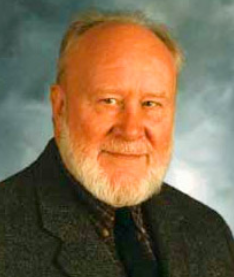
He said,
“At this moment, we are searching for something new—new ways of thinking, new ways of putting our lives together, new ways of living. I believe that creativity and …the search for newness is a journey of imagination. The critical times in which we live call for imagination…. We are in the midst of a multidimensional crisis that is progressively revealing how vulnerable, how ineffective, and how unjust our society has become. When I think of the theme “Will Modern Civilization Be the Death of Us?” I think of it in this context… What is imagination? It is uniquely human. Imagination is believing in things that actually do not exist and making them actual. As humans, we have this capability, and our imagination can make our world different.”
In another context, Dr. Hefner said, “Imagination is the means by which we grasp our future, and these times call for an extraordinary imagination as we come out of the crisis now experienced in American life.” This observation should have a wide resonance. It is obvious to everyone that we are a deeply polarized society… in fact, the American social structure is so fractured that it may take decades to recover anything that resembles “the common good.” Will we be graced with enough time to overcome this brokenness? Even with time, will we be able to put together a vision for the future that will gain the “buy-in” of a majority of Americans? Where do we look for moral leadership that seems to have disappeared from the public square? Is the church capable of stepping up to the plate? Even if so, will anyone listen?
Barack Obama calls this a moment of opportunity to transform ourselves. Obama stands in the tradition of Martin Luther King, Jr. but clearly, we are not united as a people in wanting transformation, and even among the transformers there is not a consensus. Clearly, returning to normal will not suffice.
Perhaps the only common ground on which we can build the future is the Constitution, not “strictly construed” but interpreted to fit the demands of the emerging age. Certainly we must admit that the vision implied by the founders was an imperfect one, imperfectly actualized by their own slave-holding and never completely actualized in the years since. But the ideals are there. It may be our only bedrock for a common future. The vision of a society based on freedom, equality and justice for all is worth the effort.
What might serve as a worthy goal for which to work? How can we emerge from our own kingdom of weeds? It has to be articulated in terms of the common good. What does this mean? Spiritual leaders from across the globe and through the ages implored people to “do unto others as you would have them do unto you.” Dr. King latched on to a phrase from American social theorist Josiah Royce and spoke about “the beloved community.” It seems to me that Jesus had the same idea when he preached “the kingdom of God.” It requires a new consciousness for each of us… and the realization that what we do in our personal lives matters. That’s the reason why one vote counts. That’s why the flip side of the coin called love is justice. And why the flip side of freedom is responsibility.
As always, our thanks go out to our generous contributors. We will continue to share this newsletter in the coming months and encourage you to share articles and insights that will help us all weather these difficult times.
Rick, Jennifer, Maynard, and the rest of the WesleyNexus team.
**********************************************
IRAS On-line Seminars:
August 18, IRAS will host a live webinar: The Unifying Potential of a God that is Real in the Scientific Universe, with Nancy Ellen Abrams.
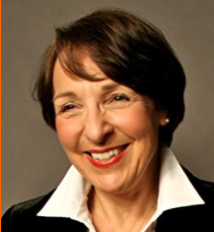
The program will begin at 4:00 PM CDT, 5:00 EDT, 2 PM PDT, 10 PM BST (UK). It will include a live Q&A session, with Dr. Joseph Bracken, professor emeritus at Xavier University, Cincinnati as the initial respondent.
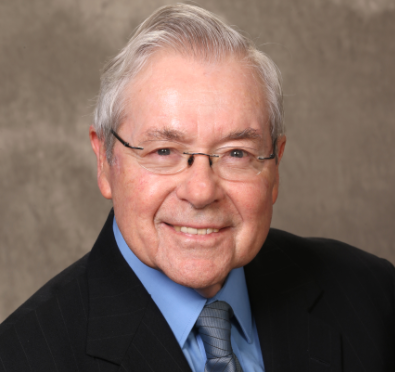
This IRAS webinar is FREE but registration is required here:
https://us02web.zoom.us/webinar/register/WN_2tW9i7mBRrmgoYXe3IME6w
Nancy Ellen Abrams is a philosopher of science, lawyer, and lecturer at the University of California Santa Cruz. Her book A God That Could Be Real: Spirituality, Science, and the Future of Our Planet proposes a radical, empowering, and future-oriented way of rethinking God in light of undeniable and growing knowledge about the universe, the human brain, and the perilous state of our world.
**********************************************
Video now available:
Theology & Covid-19: Etiological and teleological models at the nexus with science with Dr. Arvin Gouw, geneticist at Stanford University & affiliated faculty at Harvard Divinity School. The webinar includes a live Q&A session, with Dr. Ted Peters, Distinguished Research Professor of Systematic Theology at the Graduate Theological Union, Berkeley, CA. Moderating the Q & A: Dr. Ron Cole-Turner, Distinguished professor Pittsburgh Theological Seminary.
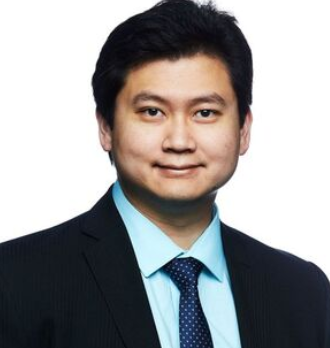
About the July 16th, 2020 webinar:
When humanity confronts a threat to life as we know it, including widespread human suffering and death, conventional perspectives on the nature of reality, including the divine reality, are thrown into a tailspin. This is the old theodicy question that troubles many faithful religious devotees, including Christians. Confronting the Coronavirus, the question across the globe becomes especially acute. Each of the world’s religions has their own answers to the question “Why?” Yet no answer seems satisfactory. In this talk, Dr. Gouw presents two complementary perspectives: an etiological model and a teleological model. One approach seeks to answer the cause of suffering; the other is focused on the purpose of suffering. We explore what happens when these two distinctly different models meet at the nexus of science. Dr. Gouw writes: “At the end, you may feel that the original question still has not been answered, but the hope is, at least now, you will see that — even without an answer — we have no excuse for ignoring our responsibility. Human empathy still calls us to do all we can to ease the torment of those afflicted with suffering.”
About the July 16th, 2020 presenter:
Dr. Arvin Gouw is the vice president for research and development at the Rare Genomics Institute (RGI), where he oversees the Rare Genomics Task Force (RGTF) and the BeHEARD Challenge (Help Empower & Accelerate Research Discoveries), which provide grants globally to rare disease researchers, foundations, and patient families. Dr. Gouw is also a research fellow in Oncology at Stanford University School of Medicine and an affiliate scientist at UC Berkeley/LBNL, developing cancer drugs and drug screening platforms, and serves as affiliate faculty at the Center for Science, Religion, and Culture (SRC) of Harvard Divinity School. Dr. Gouw holds a Ph.D. from Johns Hopkins University School of Medicine, an M.Phil. in philosophy from the University of Pennsylvania, an M.A. in theology from St. Mary’s Seminary and University Ecumenical Institute of Theology, and an M.A. in endocrinology and a B.A. in molecular cell biology–neurobiology from UC Berkeley.
**********************************************
Blog of Interest
James Miller: Bara meso Kairou, “Creating through Time” a blog on science, theology and culture

The three letters that form the logo for this blog, the Hebrew Beth and the Greek mu and Kappa, are drawn from the blog’s title translated, “Creating through Time.” The title actually has two meanings: first, creating occurs in an evolutionary sense over time; second creating is by means of time. Creatures are not things that have a history, they are their history.
The Hebrew world for creating, bara, is used exclusively in the Hebrew scriptures in reference to God’s creative activity. But there are three instances in the opening chapter of Genesis (1:11, 20, 24) in which God calls upon the existing creation to bring forth from itself the next set of creatures. The creation is portrayed as actively participating in its own creation in response to the call of God. The idea is that the actions that a creature takes, its history, not only makes it but also contributes to the making of the whole of creation.
This blog will explore ways in which science and theology interact with one another in the context of the evolving creation to create culture. It will also look at ways in which existing culture affect scientific and theological development.
Dr. James Miller is retired Teaching Elder of the Presbyterian Church (USA). For the first five years following his ordination he worked in the Department of Engineering Mechanics at North Carolina State University. The majority of his career was in the field of ministry in higher education serving the campuses of Michigan Technological University, the University of Pittsburgh and Carnegie-Mellon University. From 1996 to 2006 Dr. Miller served as senior program associate in the Program of Dialogue on Science, Ethics and Religion of the American Association for the Advancement of Science. He was the founding secretary/treasurer of the Presbyterian Association on Science, Technology and the Christian Faith (PASTCF). He also served as PASTCF’s president and general missioner. Since 2008, he has co-chaired the Broader Social Impacts Committee of the Human Origins Program of the Smithsonian Institution’s National Museum of Natural History.
https://www.baramesokairou.net/?fbclid=IwAR1CR25oRFgTVBKDx6GIVhn5RabhjyxbA76uKbk6BjIi06J8Ir_L_n2Pu6E
**********************************************
Shifting the Margins, the blog of Bishop Kenneth L. Carder
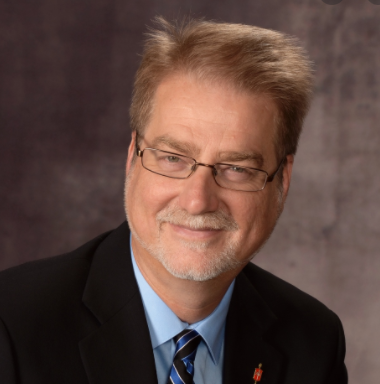
God Works through Science Too
Kenneth H. Carter, Jr. is resident bishop of the Florida Conference of the United Methodist Church. Along with the Cabinet, he gives pastoral and administrative leadership to over 800 congregations, fresh expressions of church, campus ministries and outreach initiatives in an episcopal area that stretches from Tallahassee and Jacksonville to Miami and the Keys. He came to the Florida Conference in 2012, following a ministry of almost thirty years in Western North Carolina, twenty-nine as a local church pastor.
Bishop Carter serves as a member of the WesleyNexus Advisory Board, and also serves as the president of the Council of Bishops of The United Methodist Church, and he was one of three moderators of The Commission on a Way Forward. He is author of eleven books, most recently Fresh Expressions: A New Kind of Methodist Church (with Audrey Warren; Abingdon Press, 2017) and Embracing The Wideness of God’s Mercy: The Shared Convictions of United Methodists (Abingdon Press, 2018).
**********************************************
The necessity of awe by Helen De Cruz
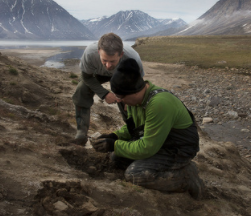
In awe we hold fast to nature’s strangeness and open up to the unknown. No wonder it’s central to the scientific imagination.
Helen De Cruz is professor of philosophy and Danforth Chair in the humanities at Saint Louis University in Missouri. Her latest book is The Challenge of Evolution to Religion (2020), co-authored with Johan De Smedt.
https://aeon.co/essays/how-awe-drives-scientists-to-make-a-leap-into-the-unknown?fbclid=IwAR05O0ZmIs2hODFyGGKOcBZ9l1rnjNTJIYefL07qNqtSHAuCOA7MIFCrECk
**********************************************
Closer to Truth: Do Science and Religion Clash?
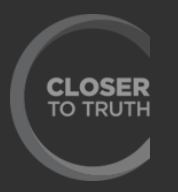
Must science and theology conflict? Or together reveal deep reality? Does only science give truth? Is theology archaic? What’s best for big answers? Science alone? Or science and theology combined?
In our time of isolation due to the coronavirus, Closer To Truth provides interviews and videos that are broad in scope and deep in content. The link below focuses on science and religion from many different perspectives.
https://www.closertotruth.com/topics/cosmos/science-and-religion
A list of contributors can be found here:
https://www.closertotruth.com/topics/cosmos/science-and-religion/science-vs-religion
**********************************************
No More Graves – an original song by Polly Edmonds Baldridge
Polly Baldridge is a Christian artist and thinker, classical singer, singer/songwriter, choral director/clinician, and teacher with a heart for people and a passion for learning. She served as minister of music for 15 years in the United Methodist tradition and continues to integrate faith and music in new endeavors that connect people and give voice to the human experience from a faith perspective. She says:
“In May 2018, I wrote No More Graves and sang it for a Memorial Day worship service. The pastor at Damascus United Methodist Church, where I was working, planned to speak on the same title and shared with me his longing for violence, war and pain to cease. I had never really written a song, but as I was vacuuming my bedroom, the words No More Graves, with a plaintive melody, just played like a recording over and over in my head. Soon other words were given to me, and I spent a couple days refining and ordering the ideas. The song is at once a song about no event in particular and every death or loss in particular. The lyrics are inspired from my faith perspective and by an overwhelming sense of our humanity and mutual connectedness.
Fast forward to the spring of 2020: it was always part of my plan to record the song and share it with others, but with my busy schedule, it didn’t come together. In the midst of quarantine, however, I felt a strong nudge to move ahead with this recording. At every turn, I have felt like the timing of this release is ordained. In the midst of the Coronavirus pandemic and the often violent reminders that our social systems perpetuate racism and division, I humbly offer this song. May the words of my mouth and the meditations of my heart be acceptable in your sight, O Lord, my rock and my redeemer.”
**********************************************
Book Review
The Reluctant Parting: How the New Testament’s Jewish Writers Created a Christian Book. 2005. By Julie Galambush. Harper SanFrancisco. 2006 paperback edition. 326 pages. ISBN: 00608-72012.
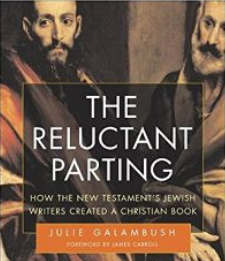
Dr. Jacob Neusner, research professor of theology and senior fellow at the Institute of Advanced Theology at Bard College, said, “This brilliant and original demonstration of how the New Testament opens the way to the Torah of Sinai, challenges both Christians and Jews to confront the founding writings of Christianity.” Julie Galambush has a solid grasp of the subject matter. She is a long-time professor of religious studies at the College of William and Mary, but previously she was ordained as a Baptist minister, and served for years as part of the ministerial team at the Interfaith Center in Columbia, Maryland. She holds a Master of Divinity degree from Yale Divinity School, and a PhD in Old Testament Studies from Emory University. At the completion of her studies, she converted to Judaism and is a member of Temple Rodef Shalom in Falls Church, Virginia. In retirement she serves informally as a scholar in residence at Cornell University in Ithaca, New York.
The rest of the review can be found here.
*********************************************
DoSER / AAAS vVrtual event August 13, 11:30 am
Dr. Gayle Woloschak and Dr. Cr Grace Wolf-Chase, both long time IRAS members, are “attending” the Science for Seminaries “retreat” this week. There’s a special public lecture by Dr. Ruha Benjamin Thursday August 13th at 11:30 am – 12:30 pm EDT, which is open to everyone who registers – check out:Race to the Future? Values and Vision in the Design of Technology and Society
It is a conversation on the future of technology, race, and religion. Dr. Benjamin will be discussing her award-winning book, Race After Technology: Abolitionist Tools for the New Jim Code, which explores the effects of machine bias and systemic racism in modern technology.Dr. Ruha Benjamin is a professor of African American studies at Princeton University. Her work explores social dimensions of science, technology, and medicine. She writes and speaks widely on issues of innovation, equity, health, and justice around the world. The first 50 U.S. registrants will receive a free e-book of Race After Technology. Register today for the lecture and extended Q&A on technology, racism, and science!
